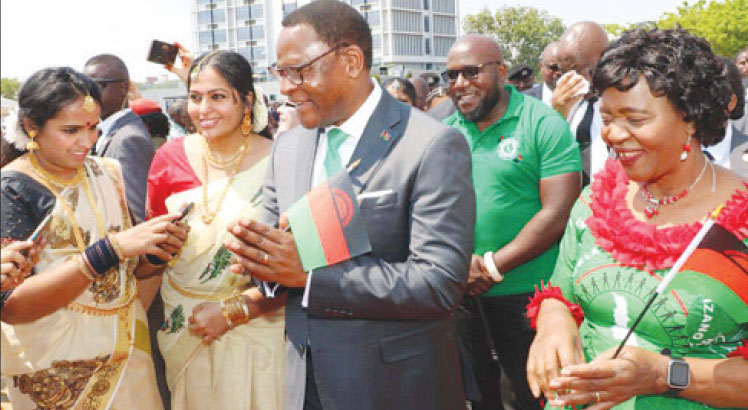Mulhako, dpp shun Unity Day
Mulhako wa Alhomwe and the Democratic Progressive Party (DPP) declined an invitation to the National Day of Unity and Dialogue and International Day of Peace commemorations, at the Bingu International Convention Centre (Bicc) in Lilongwe yesterday.
Minister of National Unity Timothy Mtambo, who confirmed sending the invitation to both the cultural grouping and the DPP leadership, described the development as shocking and a lost opportunity for the two organisations.
In a telephone interview yesterday, the cultural group’s chief executive officer Pius Mvenya confirmed receiving an invitation which they declined on the grounds that Lhomwes are victimised under the current administration.
He said: “We have been complaining of victimisation but the government does not seem to care. Our people are dismissed from public service for no good reasons and others are also arrested for no good reasons. We engaged the minister responsible for National Unity and State House but nothing has happened. Why should we associate with them when they do not care about our concerns?”

Mvenya also cited arrests of Mulhako wa Alhomwe chairperson Leston Mulli, former Reserve Bank governor Dalitso Kabambe, former CEO for National Oil Company of Malawi Gift Dulla and former Malawi National Examinations Board executive director Gerald Chiunda.
“Some of our people who have been arrested have ended up being acquitted by the court which simply confirms that these arrests have nothing to do with the rule of law but punishing our people,” he charged.
Spokesperson for DPP president Peter Mutharika Shadric Namalomba did not pick up our calls for a comment.
Ironically, the event at Bicc yesterday, presided over by President Lazarus Chakwera was aimed at fostering peace and unity among Malawians. The underlining message from the President and the Minister of National Unity Mtambo was to call on Malawians to rise above their political and tribal differences and work together for national development.
In his speech, Chakwera stressed the need for Malawians to embrace a spirit of oneness.
“We will build Malawi together and serve Malawi selflessly,” said the President, in a high-tone preachy voice and asked the audience to repeat the statement—a style common in most Pentecostal churches where Chakwera, who is a pastor himself, belongs.
Mtambo assured the President that peace and unity will continue to prevail in Malawi and this occasion was a step aimed at fostering nationhood which must come first over some cultural differences.
In an interview he said it was shocking to note the absence of the two organisations at this important event, adding that he hopes in future they will see value in attending such a function.
Mtambo said: “We invited them including the former president Mutharika but they refused to attend. Every patriot was there, that was a day of national unity and not political or any other affiliations. We must learn to put Malawi first and not our interests. These are blocks for national healing and building.”
The minister said former president Bakili Muluzi was invited but gave an apology which was understandable and commendable.
Attendees at the event included former president Joyce Banda, former vice president Khumbo Kachali, former speaker Louis Chimango, United Democratic Front Lilian Patel, diplomats, traditional and religious leaders as well as civil society representatives.
Last weekend, Mulhako wa Alhomwe held their usual annual cultural event at Chonde in Mulanje but President Chakwera was not invited. The organisers claimed that they did not want him to spend taxpayers’ money on the function at a time the country is facing serious economic challenges.
The cultural grouping, due to its conduct, has sometimes been accused of being more political than cultural. This perception has come about because of its close association with immediate past administration—the DPP. In fact, at this year’s event Mutharika took advantage of the cultural event to address the party’s internal matters.
Mvenya conceded that indeed most of its members associate with DPP but said the cultural grouping is separate from the party.





